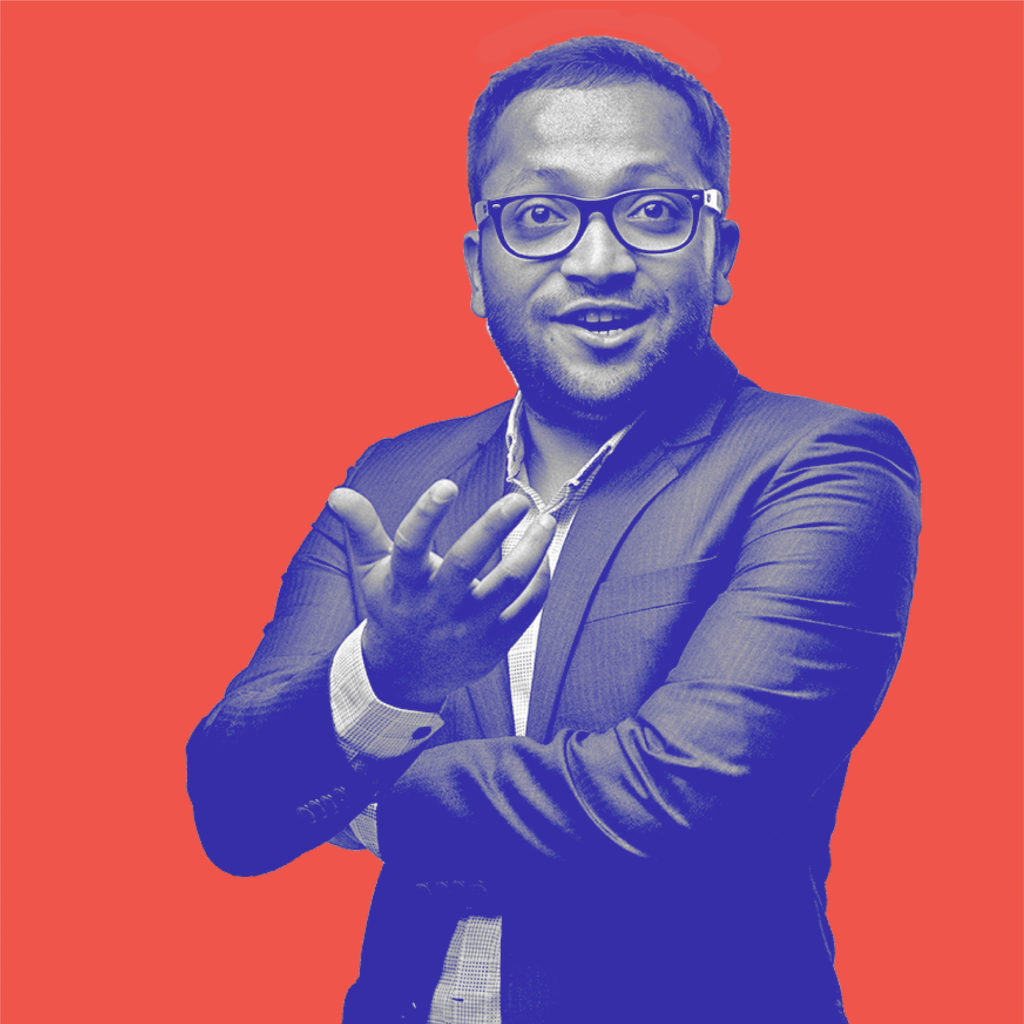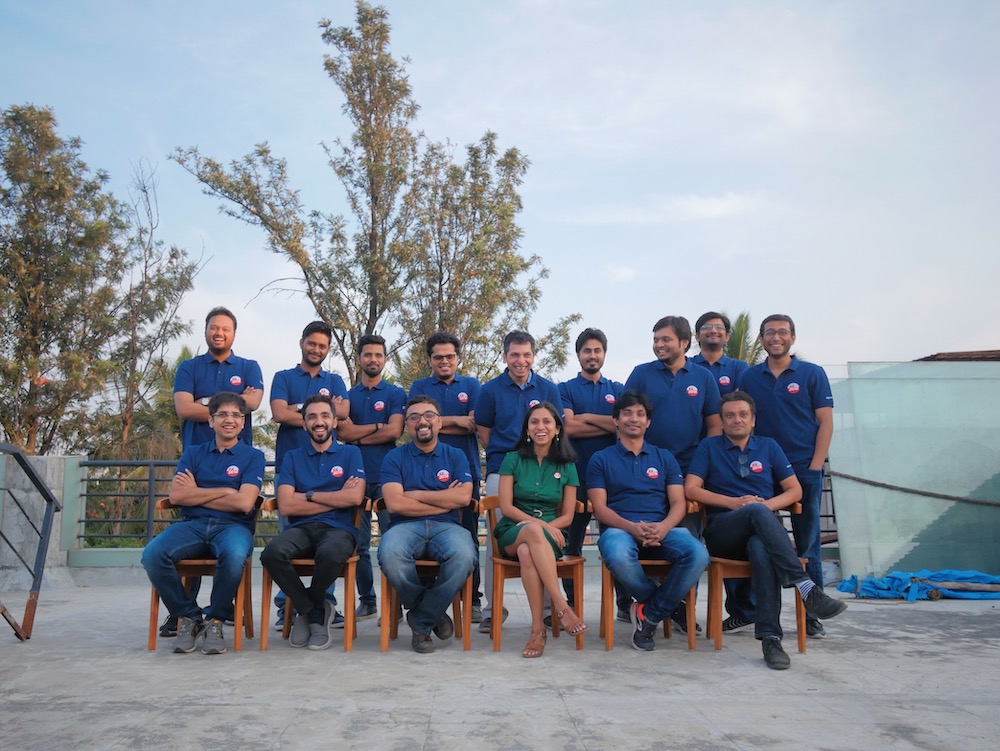In November, global VC firm Lightspeed Venture Partners announced details about the third edition of Extreme Entrepreneurs (EE), a program designed to train new entrepreneurs to build their own businesses.
The six-week, remote program starts in January 2021. Originally intended for Indian startups, Lightspeed has opened its third cohort to founders from Southeast Asia too. A series of startup icons like Grab president Ming Maa, LinkedIn CEO Ryan Roslansky, and former Coinbase CTO Balaji Srinivasan will share their journeys and insight with EE’s participants.
KrASIA recently spoke to Vaibhav Agrawal, partner at Lightspeed about the mission of Extreme Entrepreneurs and how it helps early-stage entrepreneurs discover their inspiration and confidence.

KrASIA (Kr): How did Extreme Entrepreneurs start? What makes it different from other accelerator programs?
Vaibhav Agrawal (VA): Extreme Entrepreneurs started in 2018. We realized there was a big, painful gap in the tech startup ecosystem. Only a few privileged people—those who went to top colleges, live in metro cities, and might have worked at top startups before—have access to mentors or venture capitalists who can support their journey. Meanwhile, there are a large number of high potential talents with the ambition to build something big, but lack that access.
We created a program that provides access to curios entrepreneurs. Our mission is to level the playing field, to take the blinders off and bring these outsiders into the startup ecosystem. EE is not an accelerator or incubator. This is a program to provide exposure and access to the community for people who need it the most. There is no equity nor stake, its completely free for entrepreneurs to participate.
Kr: This is the first time EE is inviting startups from Southeast Asia. What is the reason behind this change? And how many startups are you looking for from each region?
VA: Last year, we got nearly 1,000 applicants from 49 cities in India. Interestingly, we also got many inquiries through social media platforms from founders outside of India. There are many high-potential outsiders in other emerging markets, including Southeast Asia, who face pretty similar bottlenecks, so it was a very natural extension.
As this year’s program is 100% remote, we eliminated the geographical barrier. We have received around 1,050 applications from both regions so far, and we’ll take as many potential founders as possible.
Kr: What kind of startups do you want to see in EE? Do you have preferred industries?
VA: We are open to startups from any industry as long as the founders are willing to put in the effort. We’ve seen progress in bringing in outsiders from non-top-tier colleges in the second-, third-, and even fourth-tier towns. However, we are not seeing enough women founders, so we really wish to change that. We’d love to get supports from the community, media, and other founders out there to spread the word and refer women founders to the program.
Kr: How did you manage to invite top startup icons to share their insights with EE’s participants? What kind of mentorship will they provide?
VA: We’ve been fortunate in that many successful startup leaders and maverick entrepreneurs resonate with our mission. In the journeys of these stellar people, there have been many moments when they were looking for guidance, and somebody, somewhere along the way, supported them. This is an opportunity to pay it forward.
The program runs in three different formats. First, a masterclass where startup icons share their experience through fireside chats. They talk about their biggest challenges and near-death business experience, and how they overcame those problems. Second is the “office hour” with Lightspeed, where we give one-on-one mentorship and pressure-test the founders. The third is a “clinic” where startups get deep, functional, practical knowledge from experts in product marketing and sales.
Kr: Have there been any adjustments to the curriculum to address new problems caused by the pandemic?
VA: We will certainly make changes and adjustments to suit the needs of entrepreneurs today. For example, digital sales and marketing is a far bigger deal now than it was two years ago. We’re also starting to see how founders in a fully remote world target consumers in other parts of the globe. Therefore, our big focus this year is about how founders can build global companies that serve consumers all over the world.

Kr: Earlier this year, Lightspeed opened an office in Southeast Asia. What opportunities have you identified in that region? How does it connect with India?
VA: We’ve been investing in early-stage companies globally since the late 1990s, and we have made investments in some of the most prolific tech companies in Southeast Asia, like Grab, Ula, and Chilibeli in recent years. Southeast Asia has so many ambitious founders who are able to build large tech companies, so we wanted to provide the same support, mentorship, and capital access to founders in this region like what we’ve done for many successful companies around the world.
India and emerging markets in Southeast Asia share a similar problem—inadequate infrastructure. During the pandemic, we’ve seen how tech companies solve this infrastructure problem by creating digital solutions for small and medium business, logistics and supply chains, as well as online learning within a short time. This shows huge potential. It is an exciting time for startups in Southeast Asia.
Kr: In your view, what are some of the most important trends in the startup ecosystem in India and Southeast Asia next year?
VA: We’ve seen ten years’ worth of change in ten months [during the pandemic]. There is a bigger market and more opportunities are available for new entrepreneurs than before. One trend that we’re excited about is the digital transformation in education and healthcare. Previously, customers questioned whether online services in these two sectors can be effective, but with the pandemic, parents, teachers, doctors, and patients realize these tools are very helpful. So I think a lot of innovation and product improvement will happen in these sectors.
Another one is the creation of business tools and software that allow teams to work remotely and effectively. We believe that a significant portion of the workforce will choose flexibility in the near future. A large part of it will stay remote next year, so there will be new innovation and more startups will be created in this area.

